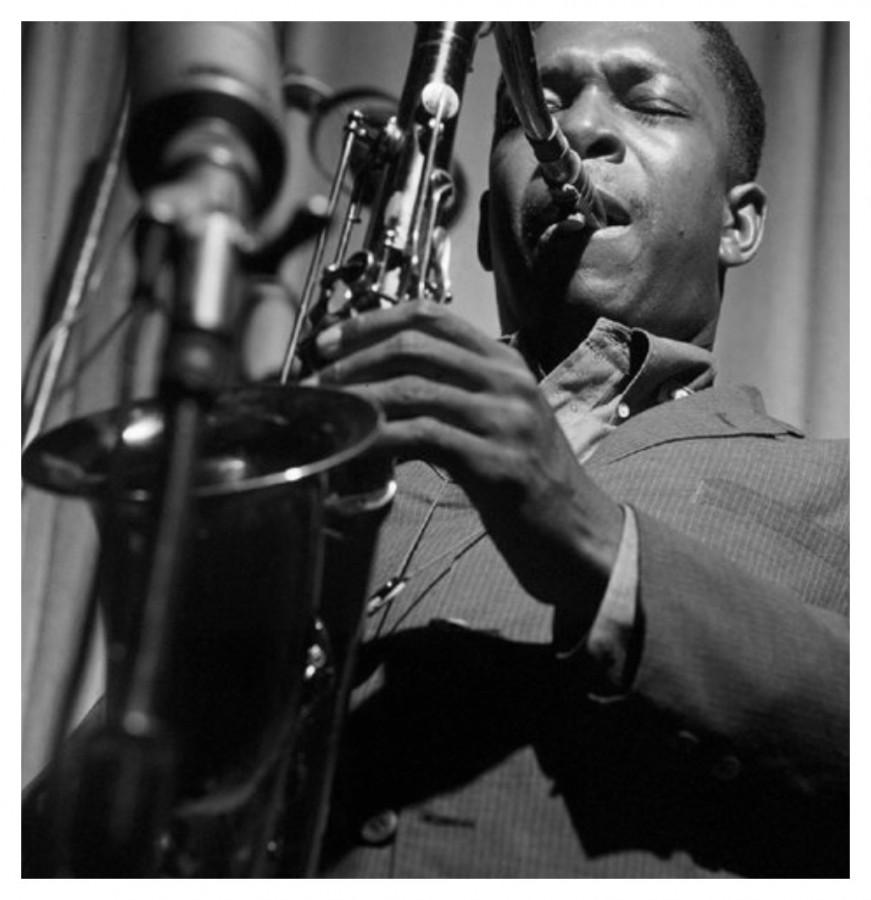Coltrane’s Live ‘Offering’ Shakes The Room
September 29, 2014
By Chris Barton
Los Angeles Times
(MCT)
John Coltrane
“Offering: Live at Temple University”
4 stars
(Resonance/Impulse)
The two-disc “Offering” practically begins mid-sentence, with John Coltrane already into the opening number “Naima” before the engineer for Temple University’s WRTI radio station could hit the “record” button.
Just nine months before his death from liver cancer in 1967, Coltrane was still a step ahead. Here, in a sprawling and rapturous concert during Coltrane’s divisive late period, he set aside his “classic quartet” for fiery and expressive free playing, setting a new course for avant-garde jazz.
With three of the album’s five tracks stretching past 20 minutes, it’s tough to break out highlights from this often-bootlegged recording of one of Coltrane’s final shows. The classic ballad “Naima” is rendered nearly unrecognizable with relentless, spiraling runs from Coltrane framed by spare percussion. A bright, odd-angled piano solo from wife Alice Coltrane offers a breather before Coltrane resumes his pursuit before floating to Earth atop the song’s gentle melody.
In keeping with the sacramental quality of his music in this era, Coltrane held an open-door policy to guests, which here include a raw and apparently uninvited Arnold Joyner on “Crescent” (featuring a scorched-earth turn from Pharoah Sanders) and young altoist Steve Knoblauch, who takes an energetic solo on “My Favorite Things.” The cameos may be jarring for those expecting an exclusive showcase of Coltrane’s efforts (though there’s plenty of that), but they underscore a drive for spiritual communion.
Consider a cameo from Coltrane’s singing voice, which appears in passionate moans on “Leo” and “My Favorite Things.” It’s an intimate reveal, but in context it’s a natural extension of Coltrane’s drive to push his sound forward toward _ and sometimes past _ an unsuspecting audience. Some apparently walked out of this show, but don’t judge them too harshly. This is intense, uncompromising music that’s not afraid of sounding unpleasant.
But it’s also transfixing. Coltrane and his band can cast such a spell that an abrupt end of the tape on “Leo” feels downright rude, like a door slamming in church. But these aren’t recordings that hinge on flawless fidelity. You want immaculate structure and production, there are plenty of albums available. You want the sound of life, of a voice summoning all its powers to shake a room and be heard, this recording is waiting.
___
(c)2014 Los Angeles Times
Visit the Los Angeles Times at www.latimes.com








